I went to Costa Rica in search of pura vida (“pure life”) this summer, and I ended up finding … a drop of water. Costa Rica’s legendary national phrase “pura vida” was originally taken from a 1956 Mexican film of the same name. It was quickly embraced by people in Costa Rica, a country that abolished its army in 1948 to redirect resources into education, health care, restoring natural habitats, and a peaceful, positive quality of life. Pura vida has become integrated into Costa Rican identity, a way of living that prioritizes well-being, gratitude, and a connection to nature and community.
Sounds good, right? I thought so, hence my quest to learn what pura vida looks like in people’s daily lives.
My first encounters with pura vida when I landed in Costa Rica were not what I expected. Walking out of the airport I was greeted by a huge plume of construction dust, deafening jack hammers and a sign proclaiming:
“Nos construyamos Pura Vida!”
”We are building Pura Vida!”
On the small plane I took from San José Airport to Nosara:
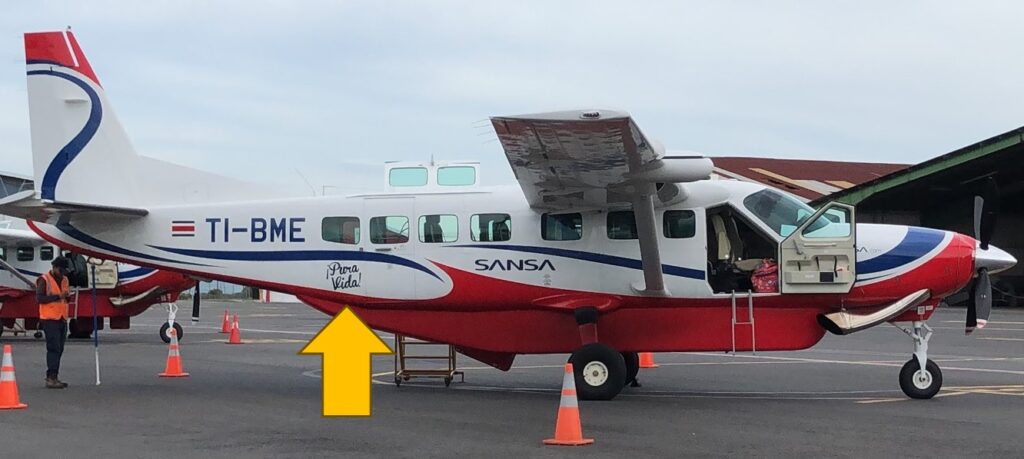
At the place I was staying:
”No tirar papel en el inodoro. Pura vida!”
”Don’t throw toilet paper in the toilet. Pura vida!”
Uh oh, I thought to myself. Since when did pura vida become commodified and cheapened? I don’t remember the phrase being used this way when I was in Costa Rica 20 years ago. Then again, Costa Rica’s seen massive development during that time, nearly doubling its GDP. Did market forces and development overrun the pura vida way of life?
When I got to the Nicoya Coast, I overheard a few older Ticos (Costa Ricans) greet each other or part with “Pura vida.” Outside of tourist tchotchkes and marketing slogans, that was my only encounter with the phrase for a while. When I eventually connected with local Ticos who were willing to talk openly with me, they told me about financial woes and rocketing costs in Costa Rica. How Costa Ricans no longer can afford to vacation in Costa Rica and go to Guatemala or Colombia instead. How locals can’t afford to buy land or build homes in the villages where their families have lived for generations because foreigners are paying US and European prices for real estate. How tourists who are willing to spend a lot on food are making it unaffordable for locals. I was shocked at how expensive everything was – Bay Area prices for food with average local salaries 10x less than Bay Area salaries. Yikes. Some of the younger adults I spoke with were frustrated with needing to work in tourism to make money while at the same time the tourism industry is making it unaffordable for them to stay in their home towns.
This is definitely not what I thought pura vida would look like. It made me question my own role as a tourist. How much am I contributing to unaffordability and erosion of pura vida?
After several days, I finally heard a Tico perspective that jived. Randall was my local turtle guide for the Olive Ridley turtle arribada at Playa Ostional. I had spent a morning hiking around the Nosara Biological Reserve with birding guide Victor, who pointed out the American and European vacation homes built right next to the Reserve. It was jarring to see giant fancy modern empty vacation homes next to the rainforest and the humble multigenerational adobe homes of locals. I asked Randall about the impact of expats living in the small village of Ostional, where he grew up. Was it bad for locals? He said, “Well, there are bad and good people from all places, not just the US or Europe, but also Costa Ricans. Some come and think they can do whatever they want. But the locals will talk with them when they are doing something harmful to the turtles or beach or forest or community. We will tell them we do not tolerate such activities, that it’s not part of our culture. The ones who won’t change don’t stay.”
Similarly, our birding guide Jorge at Mistico Park, told us about the importance of the Costa Rican national policy to provide financial incentives to land owners who choose to stop farming or raising cattle to rewild their land. He was clearly proud of the government creating and sustaining policies that prioritize the health of the ecosystem over economic and industrial development. He told us, “Costa Rica is a world leader in restoring natural spaces. We are showing everyone else how it can be done.”
This is the clearest I heard Costa Ricans talk about pura vida and what it means to them: prioritizing nature and people over development and consumption.
Still, I wondered: what does pura vida look like in everyday life?
I found glimpses of this when I met mixed expat + Tico couples. One person in the couple is an expat from the US or Europe, and the other person is a Costa Rican born-and-raised. I saw an interesting pattern: the expat partner from the US or Europe would complain about all sorts of frustrating things, from not being able to buy certain household items to Costa Rican bureaucracy and economic policies, while the Tico partner seemed to take the same troubles in stride. For them, yes, it was a problem, but no, they are not going to fixate on it and let it ruin their day.
Perhaps Abraham, our birding guide at Bosque del Rio Tigre in Osa Peninsula, captures it best. Abraham gets up before dawn and works really hard to guide visitors and build and maintain the trails and grounds at Bosque. This is extremely physically demanding work, and Abraham is much older. We could barely keep up with him on our bird walks. AND in the afternoons, he takes the time to hang out with people, cook, eat, lounge in a hammock, and take siesta. Even during his rest time, when he heard or saw something interesting, he would quickly get us so we could also see whatever amazing animal he spotted, whether a crested owl perched high up in a nearby tree, a tiny glass frog hidden below a leaf, or a fel-de-lance viper slithering through the kitchen. The pura vida life is not easy, but it is more balanced, with a clarity of values prioritizing the health of our natural surroundings and our community. Harmony and well-being is certainly more important than consuming and “getting ahead.” In fact, “getting ahead” seems to be quite frowned upon in Costa Rica, especially if it’s at the expense of anyone or anything’s health. Abraham seems quite content and at peace with the hard and beautiful life he has.
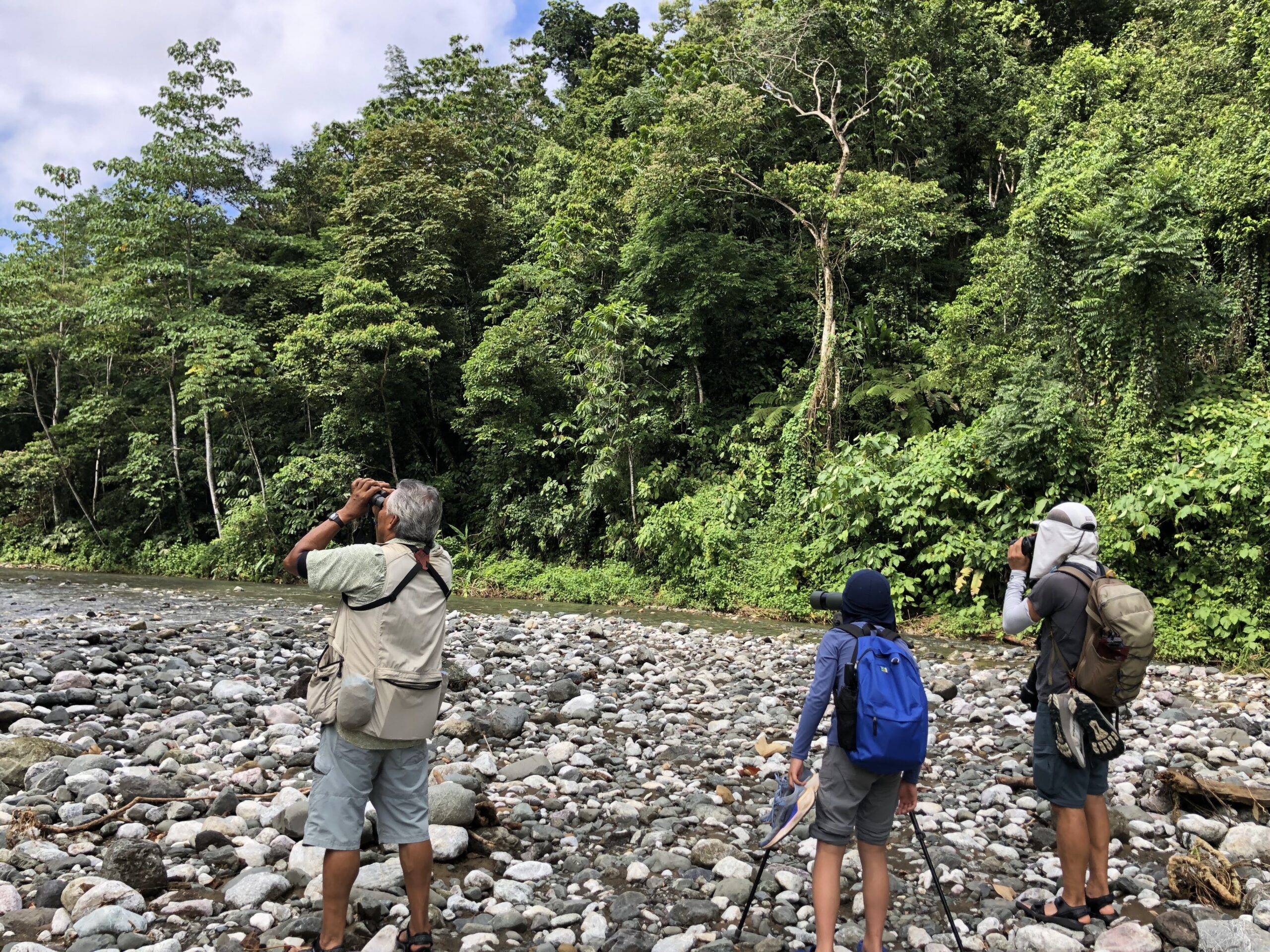
Mercedes, our awesome birding guide at Rancho Naturalista in the Cordillera de Talamanca mountains of the Caribbean slopes (and also our only female guide…!), also embodies this ethos. She worked hard from dawn to early afternoon to show us everything she could, and spent afternoons visiting family and taking care of her life. Having both hard work and time for family and well-being each day manifests in her ease, her love and skill for her work, and her presence and attention for us.
How different this is from US culture! Can you imagine feeling content and at peace with your life most of the time? Even some of the time? How different this is from my Asian immigrant tiger upbringing! How many of my ancestors have suffered because they always wanted something more or different?
There is an intensely stubborn story in my head that tells me accepting my life as it is makes me lazy. That I must constantly strive for something better, different, more. Shedding hustle culture has been harder than I thought it would be. And now, with the rise of authoritarianism and erosion of democracy in the US and around the world, it feels even harder to be chill and pura vida about life. I should be working my butt off to defend social/ecological justice, equity and democratic norms, right?
How do Ticos who embody pura vida in their daily lives deal with societal and ecological threats? Can we be chill and fierce and enjoy life at the same time?
Geiner, our amazingly high-energy and engaging guide at the Costa Rica Best Chocolate Tour in Chilamate, answered that question with a story. After describing the many ecological challenges Costa Rica faces with rapid development, he shared with us the story of the hummingbird Dukdukdiya from Haida and Quechan indigenous cultures. During a raging wildfire, while all the other animals are fleeing, a tiny hummingbird named Dukdukdiya collects single drops of water and flies them back, one at a time, to fight the flames. When the animals scream up to her, “Little Dukdukdiya, WHAT are you DOING??!” she responds without stopping, “I am doing what I can.”
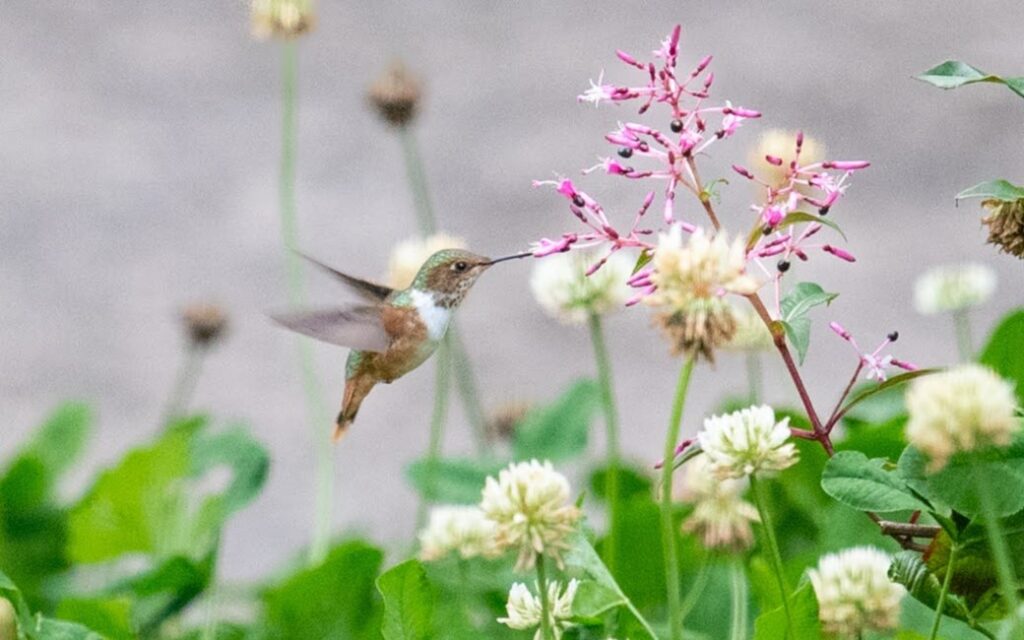
So, Geiner went on to say, he and his family created the Best Chocolate Tour not to sell chocolate but to teach people about the rich history of cacao and really, the rich biodiversity they want people to love and protect. Chocolate is the draw, ecological advocacy is the mission.
Running these tours is Geiner’s drop of water. Randall’s drop of water is showing people the turtles at his local beach so we can continue protecting them. Victor, Abraham and Mercedes’ drops of water are to show people the birds and other wonders of their homes so the land can remain wild and biodiverse. It’s hard work, but it’s also fun and meaningful.
I carried all this back home to the US. What pura vida looks like: a life that prioritizes our values; we work hard while taking good care of our natural world, our health and our communities. I had taken a break from US news during my time in Costa Rica (what a relief), but very quickly the realities of ever greater damage to our democratic norms and public health (the field I work in) flooded back into my life. I knew that fighting these fires as I had in the past took a toll on my personal life and health. I needed to find my drop of water: a way to do good in the world while taking care of my health and family’s well-being.
For a few weeks I struggled deciding what to do to help. Nothing felt quite right: this activity was not impactful enough, that activity had dubious impact, or another activity would be exhausting. Then, as if the Universe heard me, a colleague reached out and shared that a project helping people experiencing homelessness with their healthcare suddenly (and surprisingly) got funded. She invited me to be part of the project, and I can participate in a way I still have time to take care of my health and enjoy life. I found my drop of water. And pura vida!
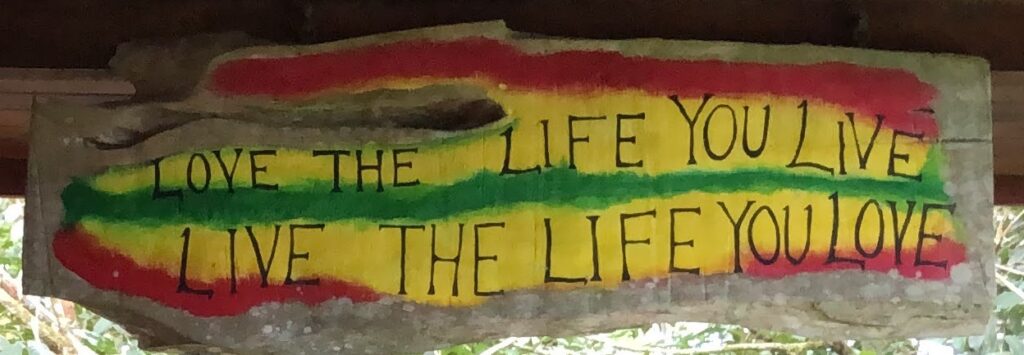
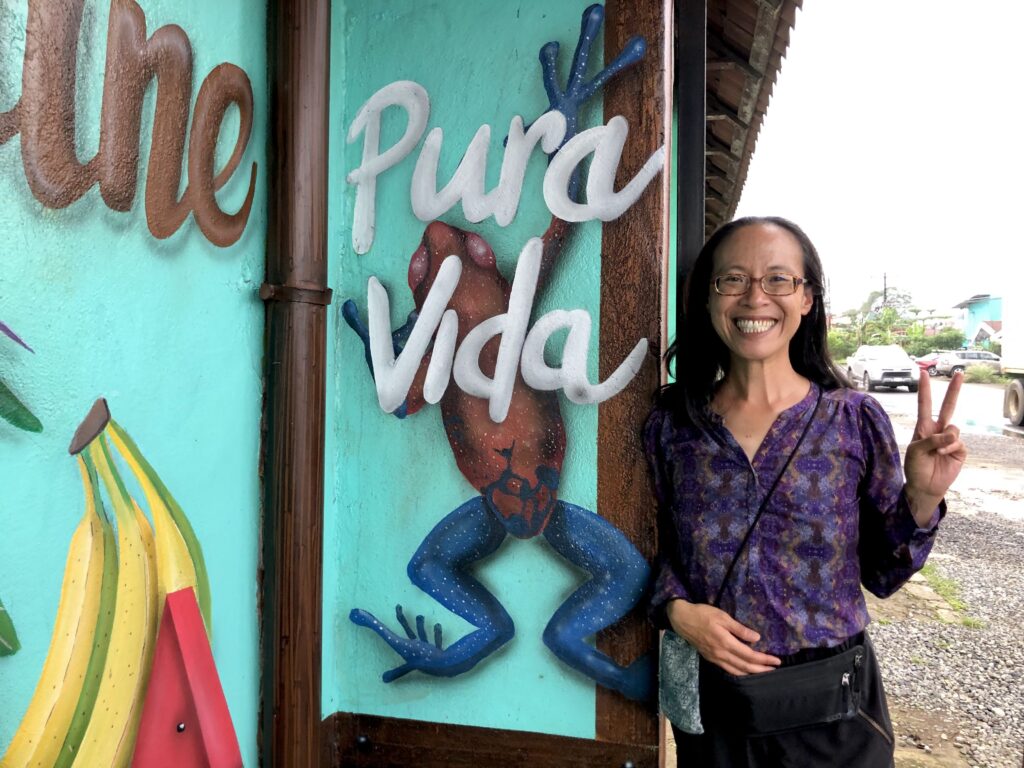

Dear Sophy, Thank you. Beautiful writing. Finding our drops of water. Stephen